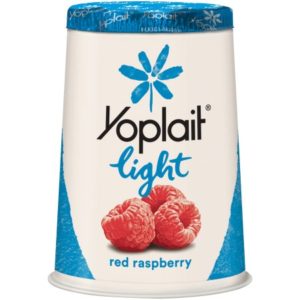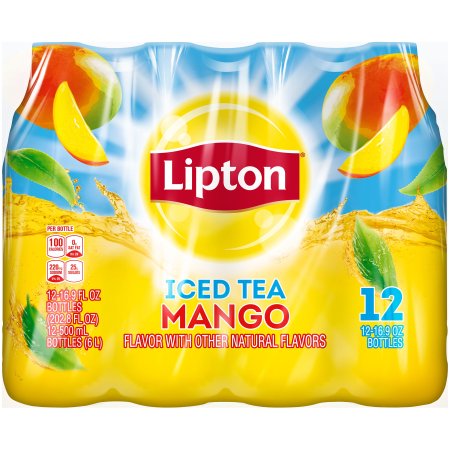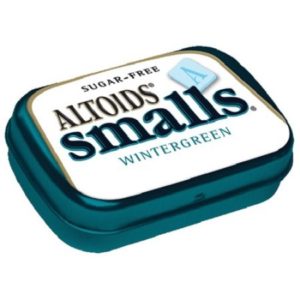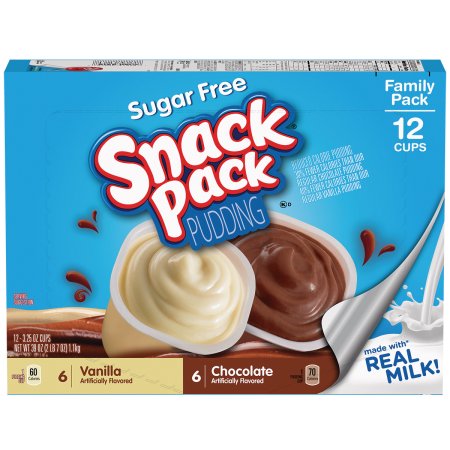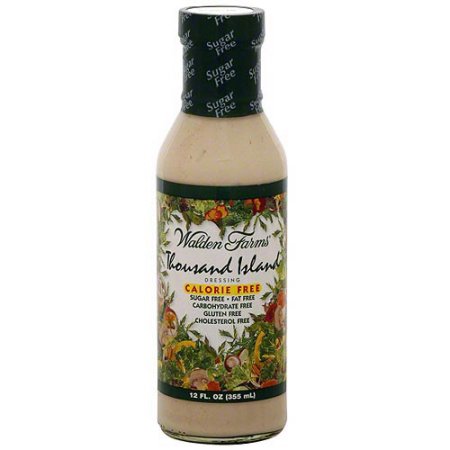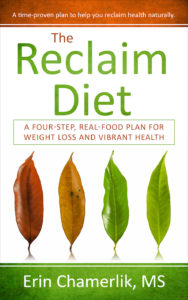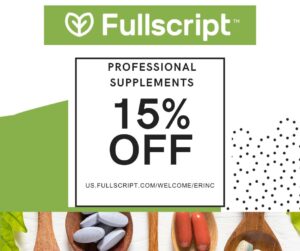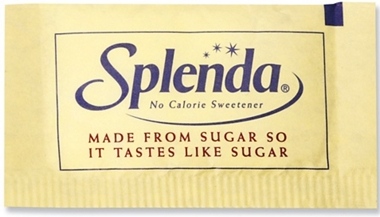
Hidden Artificial Sweeteners Are Making You Sick & Fat
Still Reaching for Sugar-Free and Diet Food and Beverages?
Eating
“Sugar Free”
packaged food?
Artificial Sweeteners are a Big Health Problem.
They may be making you gain weight and suffer from a variety of health problems.
This is not new information, just information that people keep ignoring.
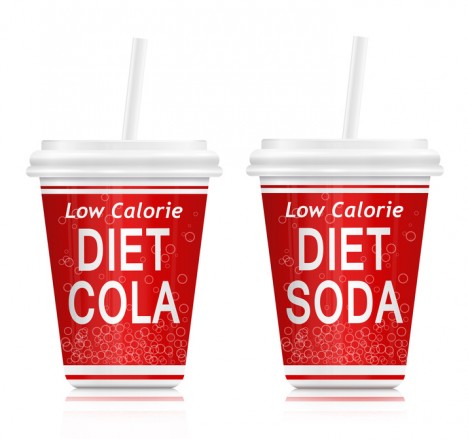 Wake up, you diet drink junkies! Your beverage of choice is doing a number on you.
Wake up, you diet drink junkies! Your beverage of choice is doing a number on you.
Diet drinks and diet foods are:
- Addicting
- Making you fat
- Weakening your bones
- Making you gassy (and we are kind of tired of that)
- Changing your brain, causing seizures, headaches and an MS-like syndrome
- Screwing up your stomach (hey, you with the Diet Coke in your hand, are you also taking acid-lowering drugs?)
- Increasing your risk for esophageal cancer
There are 92 different health effects associated with aspartame consumption, according to Dr. Janet Starr Hull.
Artificial Sweeteners are Very Dangerous
Consider that artificial sweeteners may come in the form of diet drinks, sugar-free foods, breath mints, gum and even supplements. Read the labels and know what you are eating!
Walden Farms Thousand Island Dressing
Includes the following ingredients:
- Natural Spices, Natural Flavors, (MSG?)
- Sucralose/Splenda
- FD&C Red #40, Yellow #5, #6,
- Sodium Benzoate Preservative
MS-type symptoms are linked to artificial sweeteners and MSG.
- Dementia
- Headaches
- Parkinson’s-like symptoms
- Trembling (can be caused by drinking a few diet sodas each day)
- Racing heartbeat
- Skipped heartbeat
- Tachycardia
- Nausea
- Eye problems, deterioration of the eyes
Dr. Gloria Gilbere, N.D., PhD, helped a woman wean off drinking 6 cans of diet soda a day.
At the end of 3 months her Parkinson’s symptoms disappeared. Check out Dr. Gilbert’s work.
What do the “experts” say about artificial sweeteners?
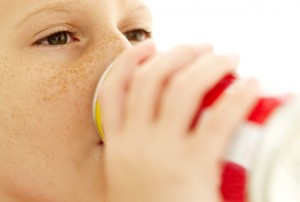 The Academy of Nutrition and Dietetics has this statement on their website regarding artificial sweeteners:
The Academy of Nutrition and Dietetics has this statement on their website regarding artificial sweeteners:
“The Academy’s position is that “consumers can safely enjoy a range of nutritive sweeteners and non-nutritive sweeteners when consumed within an eating plan that is guided by current federal nutrition recommendations.”
Despite what you may have heard, artificial sweeteners like aspartame, saccharine, neotame, acesulfame-K and sucralose don’t cause birth defects or cancer and they aren’t linked to behavior problems.”
The American Diabetes Association says
artificial sweeteners “can be used to sweeten food and drinks for less calories and carbohydrate when they replace sugar.” (But only if you don’t mind having MS-like or Parkinson’s-like symptoms).
You have got to love a trade group like Diabetes.org who recommends so many processed foods in its recipe section:
Get a lot of the ingredients for Diabetes.org Strawberry Shortcake
- Cooking Spray
- Splenda
- Bisquick® Gluten Free mix
- margarine
- skim milk
- egg substitute
- Splenda Sugar Blend
- Cool Whip
- Real food ingredients: 2 (strawberries and vanilla).
Maybe they don’t know?
Negative.
- The FDA knows, tracked various adverse effects and reported that over 75% of the adverse reactions reported to the FDA were due to aspartame. That was as of 1995. How did the FDA respond to this clear problem? They stopped accepting adverse reaction reports on aspartame.
- Artificial sweeteners RAISE the risk of diabetes.
- Artificial sweeteners increase cravings and sugar dependence.
- When the tongue tastes sweet, yet no calories are associated with the trigger, the food reward pathway in the brain is not triggered. You’ll eat more.
Follow the money
- Could it be that the Academy of Nutrition and Dietetics and The American Diabetes Association promote the use of artificial sweeteners because of funding from Big Food corporate partners?
- Aspartame is found in over 6,000 products. Gum, candy, gelatin, desserts, ice cream, yogurt, vitamins, prescription medicine, cough drops, and more. Any product labeled as “sugar free” is likely to have an artificial sweetener.
- The global value market for artificial sweeteners is forecast to be $1.7 billion in 2017. Experts predict that this market will reach a projected $2 billion by 2022.
Diet Food and Beverages are Making you Sick and Fat.
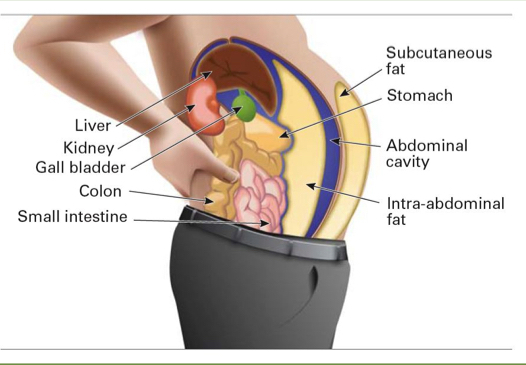
- Professor Helen Hazuda, of the University of Texas’s health science center studied 500 people for 10 years and found that diet soda drinkers waists expand 70% faster.
- People who drink 2 cans a day are considered “heavy users” in the above study and were found to have bellies 500% bigger. (Now we have “aspartame spread” to go on our “muffin top.”)
- Another study showed that daily aspartame elevates fasting blood glucose levels in animal studies.
What can you do?
Avoid artificial sweeteners at all cost.
They ALL are causing damage, and this includes sucralose.
The best non-caloric sweetener is from a plant called stevia. Look for pure stevia extract.
I like SteviaClear the best!
What to look for on packaged food labels
- Acesulfame potassium (also called acesulfame K, ACE-K)
- Sunette
- Equal Spoonful
- Sweet One
- Sweet ‘n Safe
- Equal
- NutraSweet
- Aspartame
- Saccharin
- Sucralose
- Splenda
- Neotame
- NatraTaste Blue
- and many more
Here is a list of natural sweeteners that can be used in moderation by most people:
- Raw honey
- Grade B Maple Syrup
- Blackstrap Molasses from sugar cane
- Stevia
- Lo Han
Ditch products with artificial sweeteners. Read labels! Eat Real Food!
Footnote
What the FDA knew about Aspartame at least 15 years ago.
From: Mark Gold
To: fda.gov
Subject: Docket # 02P-0317 Recall Aspartame as a Neurotoxic Drug: File
#4: Reported Aspartame Toxicity Reactions
Subject: Docket # 02P-0317
Date: January 12, 2002
Please find below Evidence File #4: Reported Aspartame Toxicity Effects
Reported Aspartame Toxicity Effects
---------
In an epidemiological survey which appeared in the Journal of
Applied Nutrition (Roberts 1988), 551 persons who have
reported toxicity effects from aspartame ingestion were
surveyed. The adverse effects found cover a subset of reported
acute and chronic toxicity effects from aspartame.
What follows is a listing of the adverse health effects
which were found.
-------------------
# of
people (%)
Eye
- Decreased vision and/or other eye problems 140 (25%)
(blurring, "bright flashes," tunnel vision)
- Pain (or or both eyes) 51 (9%)
- Decreased tears, trouble with contact lens, 46 (8%)
or both
- Blindness (one or both eyes) 14 (3%)
Ear
- Tinnitus ("ringing," "buzzing") 73 (13%)
- Severe intolerance for noise 47 (9%)
- Marked impairment of hearing 25 (5%)
Neurologic
- Headaches 249 (45%)
- Dizziness, unsteadiness, or both 217 (39%)
- Confusion, memory loss, or both 157 (29%)
- Severe drowsiness and sleepiness 93 (17%)
- Paresthesias ("pins and needles," "tingling") 82 (15%)
or numbness of the limbs
- Convulsions (grand mal epileptic attacks) 80 (15%)
- Petit mal attacks and "absences" 18 (3%)
- Severe slurring of speech 64 (12%)
- Severe tremors 51 (9%)
- Severe "hyperactivity" and "restless legs" 43 (8%)
- Atypical facial pain 38 (7%)
Psychologic-Psychiatric
- Severe depression 139 (25%)
- "Extreme irritability" 125 (23%)
- "Severe anixiety attacks" 105 (19%)
- "Marked personality changes" 88 (16%)
- Recent "severe insomnia" 76 (14%)
- "Severe aggravation of phobias" 41 (7%)
Chest
- Palpitations, tachycardia (rapid heart action), 88 (16%)
of both
- "Shortness of breath" 54 (10%)
- Atypical chest pain 44 (8%)
- Recent hypertension (high blood pressure) 34 (6%)
Gastrointestinal
- Nausea 79 (14%)
- Diarrhea 70 (13%)
Associated gross blood in the stools (12)
- Abdominal pain 70 (13%)
- Pain on swallowing 28 (5%)
Skin and Allergies
- Severe itching without a rash 44 (8%)
- Severe lip and mouth reactions 29 (5%)
- Urticaria (hives) 25 (5%)
- Other eruptions 48 (9%)
- Aggravation of respiratory allergies 10 (2%)
Endocrine and Metabolic
- Problems with diabetes: loss of control; 60 (11%)
precipitation of clinical diabetes;
aggravation or simulation of diabetic
complications
- Menstrual changes 45 (6%)
Severe reduction or cessation of periods (22)
- Paradoxic weight gain 34 (5%)
- Marked weight loss 26 (6%)
- Marked thinning or loss of the hair 32 (6%)
- Aggravated hypoglycemia (low blood sugar 25 (5%)
attacks)
Other
- Frequency of voiding (day and night), burning 69 (13%)
on urination (dysuria), or both
- Excessive thirst 65 (12%)
- Severe joint pains 58 (11%)
- "Bloat" 57 (10%)
- Fluid retention and leg swelling 20 (4%)
- Increased susceptibility to infection 7 (1%)
Recommended
-
Dandelion for Liver Support and Health BenefitsJuly 20th, 2024
-
Modified Citrus PectinJuly 11th, 2024
-
Bentonite Clay Mask for Face and ArmpitsJuly 8th, 2024
-
Two Supplements for Erectile DysfunctionJune 30th, 2024

